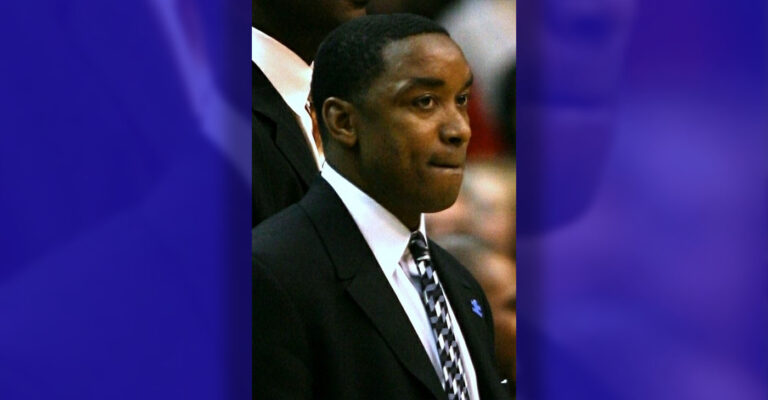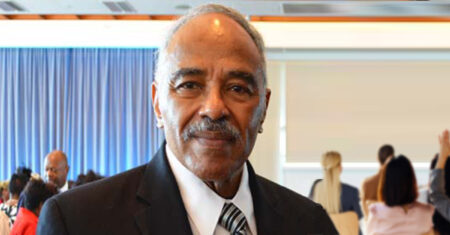By Stacy M. Brown
Black Press USA Senior National Correspondent
There is something tender and knowing in the way Isiah Thomas speaks about the earth. It is the tenderness of a man who understands struggle and sunlight, who respects what grows slowly and what survives storms. When he began describing how his journey into renewable materials first took root, he started not with profit sheets or projections, but with the living world beneath our feet.
“I began by understanding the plants and the soil,” Thomas told Black Press USA. “Rice, corn, soy, all of these crops work directly with the earth. They are biofeed. They speak to the ground.”
He said he watched how these plants responded to wind, water, and purpose. He spoke of them almost like kin. “They show you what they can become if you pay attention,” the NBA Hall of Famer stated. “They show you how to live with the earth instead of against it.”
From those thoughts came a deeper question. Thomas wanted to know how to reduce plastic use during a time when industries across the world were scrambling to shrink their carbon footprints. “I began looking at how we take carbon out of the system, how we reduce plastics, and whether there was something in these natural fibers that could answer that call,” he said.
He hired engineers. He worked with Stellantis. He poured time and thought into a field most people in his world did not consider. “There were a lot of research moments, a lot of ups and downs, a lot of failures,” Thomas acknowledged. “But eventually, we got it. And once we got it, we patented the process and started moving it into automotive.”
That path led to a milestone no NBA player had ever reached. Thomas became the first in league history to hold majority control of a publicly traded company, guiding One World Products into its transition as Isiah Enterprises, a clean-tech leader rooted in renewable materials and sustainable production.
His rise in business leadership began with a near-failing facility in Midland, Michigan. Eco Bio Plastics Midland was close to bankruptcy. Thomas said he saw more than broken machines and struggling workers. “When I looked at that place, I saw a chance to rebuild something. I saw possibility,” he explained.
He bought it. He nurtured it. And under his direction, the company expanded into advanced materials used in vehicles, reusable containers, and packaging solutions. The transformation became the foundation of Isiah Enterprises.
The company began gaining ground. It shipped over 100,000 pounds of pelletized rubber compounds from the Michigan facility, proving that sustainable manufacturing could be scaled with precision and care. “This milestone represents more than just output,” Thomas declared. “It tells us the strategy works.”
The growth continued as One World expanded its Eco Bio Plastics division through a compounding partnership with Full Circle Technologies. “We are processing tens of thousands of pounds of renewable materials every week,” Thomas proclaimed. The expansion opened doors to a massive global packaging industry valued in the trillions and built on earlier successes, including hemp-based reusable containers delivered to Flex-N-Gate in collaboration with ORBIS and West Michigan Compounding.
The two-time NBA champion’s leadership in sustainable innovation stretches back further. He stepped in as CEO of One World Pharma in 2020, bringing with him relationships across continents and a commitment to working honorably with indigenous communities in Colombia. He said the company had “deep commitment to excellence and humanitarian partnership.”
To secure the future he envisioned, Thomas increased his own investment in the company while working alongside institutional backers who believed in the mission. “I wanted to make sure we had the capital we needed to grow responsibly,” the all-time great Detroit Pistons floor general said. He added that long-term supporters helped restructure debt and strengthen operations.
Yet the story that holds his heart rests with family. When asked whether he always dreamed of leading a public company, he shook his head. “It wasn’t always part of the plan,” Thomas related. “What was always part of the plan was uplifting my family out of generational poverty.”
He said some nieces, nephews, and cousins still struggle. The knowledge grounds him. It gives weight to each decision. “I started looking at the penny stock differently,” Thomas said. “I thought about people buying in for one, two, or five dollars. I thought about what that could mean for families like mine.”
He spoke with the memory of someone who has watched wealth pass through other communities without stopping in his own. “We never get a chance to participate at the ground level,” he said. “The only time we get to play with that kind of money is the lottery. But what if instead of buying tickets, we bought shares? What if we became shareholders and not ticket holders?”
Thomas noted that he watches how wealthy families give stock to their children every holiday. “They pass out stock,” he said. “They stuff the stockings with stock. And by the time those kids are in high school, it is worth something. I want that for other families too.”
His long-term dream is bold. “My goal is to be the first NBA player to uplift a company to the NASDAQ,” Thomas said. “If we take this stock from two cents to a dollar, people can do the math. They will know what it means.”
The challenge now is spreading the word and delivering the applications that industries are demanding. “The automotive and food packaging worlds are calling for alternatives,” he continued. “We have come up with several applications already. Now I have to make sure we execute.”
With a calm that feels both gentle and resolute, Thomas looked toward the horizon of his new work. And with the same tone he used many times on the court when victory required faith, he said, “Now I have to come up with the applications to do it.”






